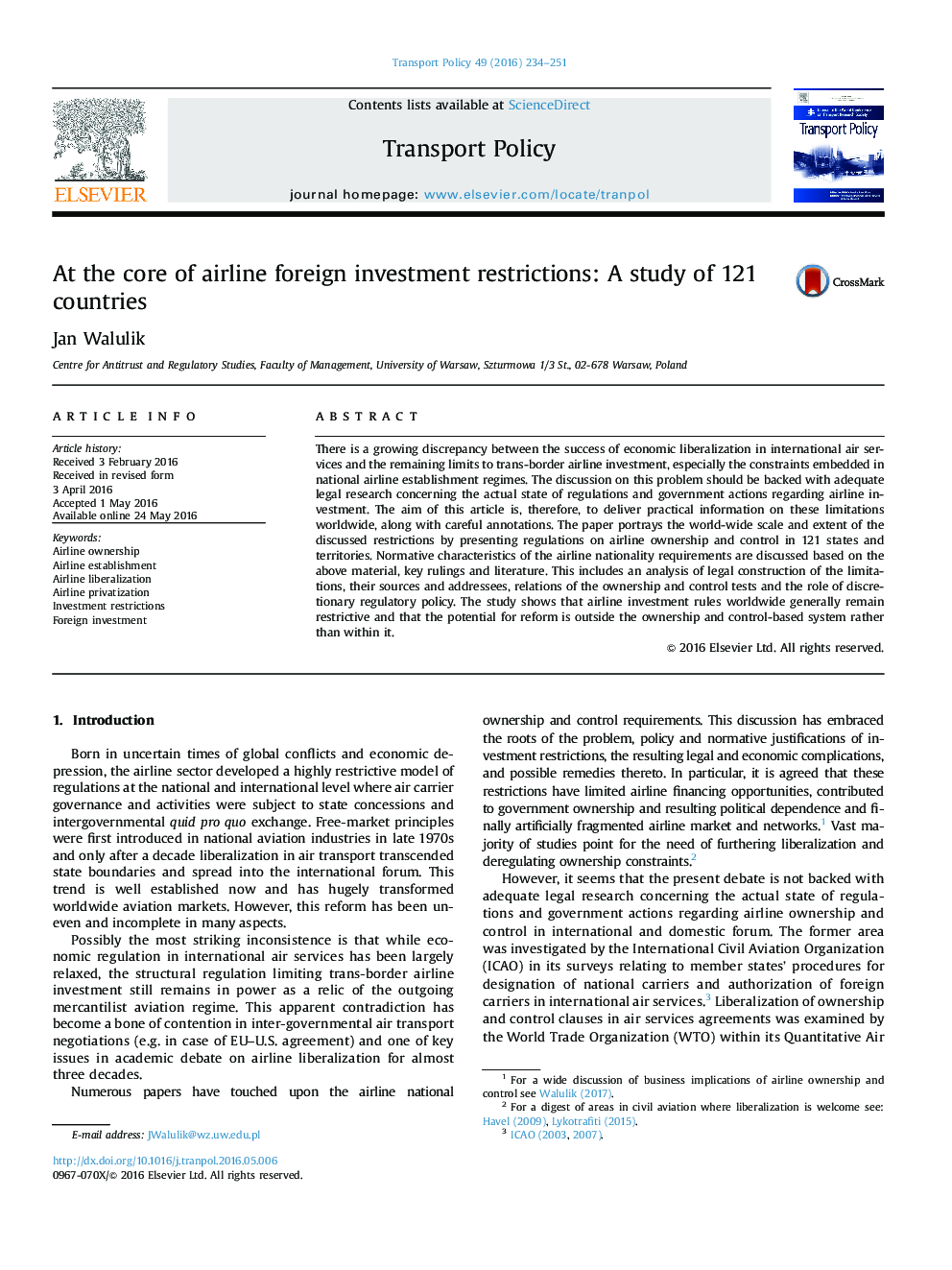| Article ID | Journal | Published Year | Pages | File Type |
|---|---|---|---|---|
| 1064790 | Transport Policy | 2016 | 18 Pages |
•Despite liberalization in aviation, restrictions in foreign investment are still prevalent in national laws and policies.•Restrictions investment are interrelated with international aviation laws and policies.•Despite local differences, airline investment regimes share common features.•Community carrier arrangements bring partial liberalization within the current regimes.•Potential for furthering liberalization is outside the ownership and economic control criteria.
There is a growing discrepancy between the success of economic liberalization in international air services and the remaining limits to trans-border airline investment, especially the constraints embedded in national airline establishment regimes. The discussion on this problem should be backed with adequate legal research concerning the actual state of regulations and government actions regarding airline investment. The aim of this article is, therefore, to deliver practical information on these limitations worldwide, along with careful annotations. The paper portrays the world-wide scale and extent of the discussed restrictions by presenting regulations on airline ownership and control in 121 states and territories. Normative characteristics of the airline nationality requirements are discussed based on the above material, key rulings and literature. This includes an analysis of legal construction of the limitations, their sources and addressees, relations of the ownership and control tests and the role of discretionary regulatory policy. The study shows that airline investment rules worldwide generally remain restrictive and that the potential for reform is outside the ownership and control-based system rather than within it.
